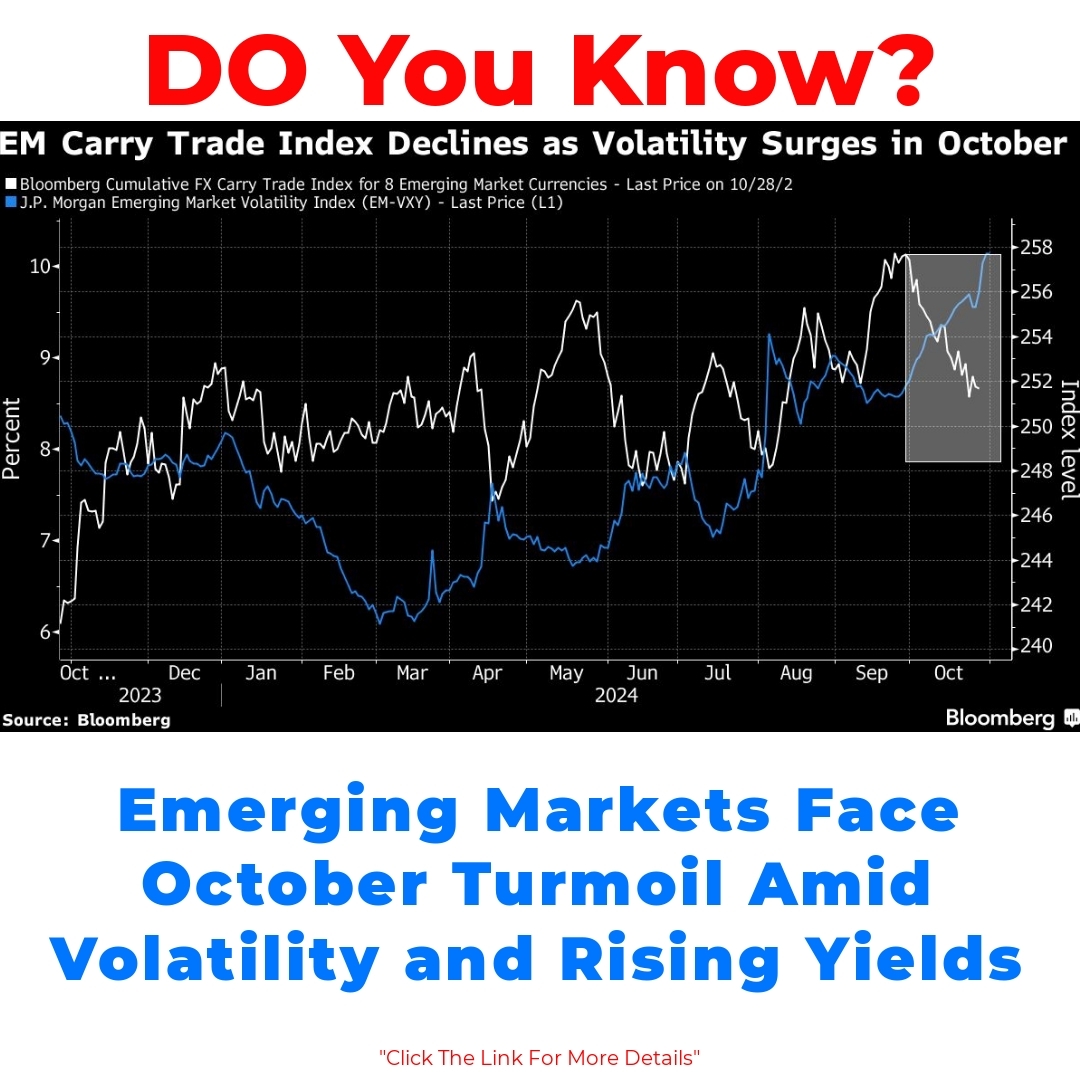Emerging-market assets play a critical role in enriching diversified investment portfolios. As October proved to be a month of heightened volatility, understanding the factors contributing to this turbulence is essential for investors. This article delves into the shifts in market dynamics and how they impact investment strategies in emerging markets.

Understanding the Landscape of Emerging-Market Assets
Emerging-market assets refer to investments in countries that are in the process of developing economically but still have some degree of risk compared to established markets. These assets can include stocks, bonds, and real estate in these regions. They attract investors for several reasons, especially during times of market turbulence like we witnessed in October. The potential for higher returns, diversification benefits, and exposure to rapidly growing economies make them appealing.
October’s Market Turbulence and its Impact
October was quite a rollercoaster for the markets, highlighting just how volatile emerging-market assets can be. We saw significant fluctuations, primarily driven by rising global yields. As investors raised their expectations around interest rates, it put pressure on these assets. The impact of rising global yields on emerging-market assets can be substantial: as yields rise, borrowing costs increase, making it more expensive for these countries to finance their debts. This could lead to a decrease in investor confidence and a shift towards safer investments.
The Influence of a Stronger Dollar
One vital aspect of the current landscape is the role of a stronger dollar. When the dollar appreciates, it can create challenges for emerging-market assets. Currency fluctuations often lead to increased volatility as investors reassess the risks associated with currencies tied to these markets. For instance, how currency fluctuations affect emerging-market investments is profound; weaker local currencies can erode the value of investments when converted back to dollars. This situation can lead to hesitance among investors, further impacting market dynamics.
Risk Assets in a Pre-election Environment
As the US election approaches, we’ve seen a noticeable shift in investor behavior, particularly concerning risk assets. Investors are re-evaluating their portfolios, looking to reprice risk assets well ahead of the election outcomes. In times of uncertainty, it’s crucial to have a strategy in place. Strategies for managing risk in emerging markets before the US election might include diversifying into less volatile assets or looking for opportunities that offer better stability. Staying informed and ready to adapt can help mitigate potential losses during this unpredictable period.
Investor Sentiment and Future Outlook
Currently, investor sentiment towards emerging-market assets is a mix of caution and optimism. As we look at the landscape shaped by recent changes, it’s essential to keep an eye on potential trends. Factors influencing the future of these markets include ongoing volatility, shifts in global yields, and the eventual outcomes of elections. Understanding these dynamics will help investors make informed decisions about their portfolios.
Conclusion
In summary, while emerging-market assets present both challenges and opportunities, navigating these waters requires thoughtful strategies. The interplay of rising global yields, currency fluctuations, and upcoming political events creates a complex environment for investors. Strategic risk management will be paramount as we move through this evolving market landscape, ensuring that investors can effectively capitalize on the dynamic nature of emerging-market assets.
Stay informed about emerging-market assets and market developments, especially with significant events like the US election on the horizon!
FAQ
What are emerging-market assets?
Emerging-market assets refer to investments made in countries that are developing economically. These can include stocks, bonds, and real estate. They are considered riskier than investments in established markets but can offer potential for higher returns and diversification.
Why do investors gravitate towards emerging-market assets during turbulent times?
During market turbulence, such as that experienced in October, emerging-market assets can attract investors because of their potential for higher returns and the opportunity to diversify their portfolios. These assets may thrive even when other markets are struggling.
How did October’s market turbulence affect emerging-market assets?
October’s fluctuations were mainly due to rising global yields, which increased borrowing costs for emerging markets. This led to lower investor confidence and prompted many to shift towards safer investments.
What impact does a stronger dollar have on emerging-market investments?
A stronger dollar can pose challenges for emerging-market assets. Currency fluctuations may increase volatility, and weaker local currencies can reduce the value of investments when converted back to dollars, discouraging investors.
What should investors consider as the US election approaches?
As the US election nears, investors are reassessing risk assets. Strategies for managing risk might include diversifying into less volatile investments and maintaining flexibility in their portfolios to adapt to changing market conditions.
What factors are influencing the future outlook for emerging-market assets?
Factors affecting the outlook for these markets include ongoing volatility, fluctuations in global yields, and the results of upcoming elections. Investors need to monitor these dynamics closely to make informed decisions.





